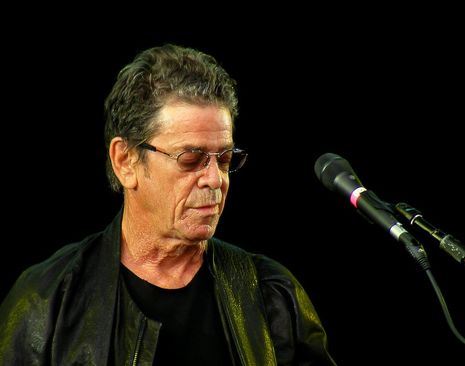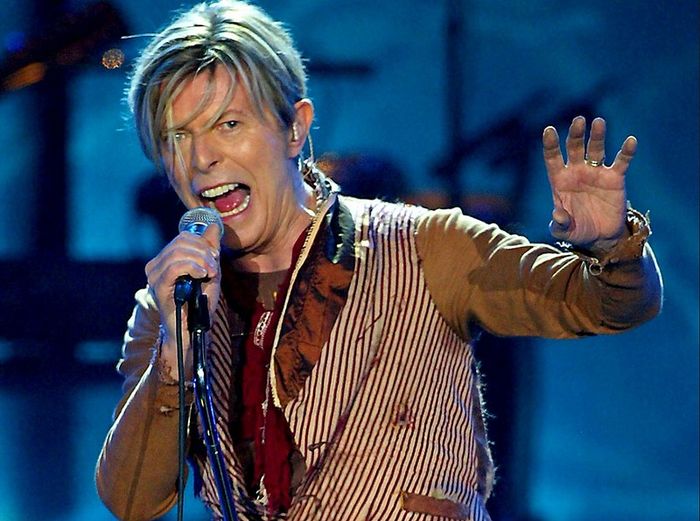When Cambridge was subjected to the ‘tubular groaning of a galactic refrigerator’
In 2010, Lou Reed performed his album Machine Metal Music at the Junction as part of its 20th anniversary celebrations

Lou Reed is the kind of musical icon best imagined in a leather jacket, half-finished cigarette in hand, standing against a New York City skyline. So, it is difficult to picture him loitering outside Cambridge Junction with a giant heap of electronic equipment, more closely resembling an astrophysicist than a rockstar. Yet, this is exactly how he appeared in 2010 when he performed as part of the Junction’s 20th anniversary celebrations. For this was no conventional rock show. Lou Reed was playing in a band that he had recently formed called Metal Machine Trio. True to his reputation for being provocative, Reed played a live rendition of his 1975 album Metal Machine Music. This may sound innocent but it has a long (and somewhat humorous) history.
“RCA had made one of music’s most cardinal sins: they had told Lou Reed what to do”
Lou Reed’s Metal Machine Music (subtitled *The Amine β Ring) is a record that will have you reaching for the nearest hammer in a vain attempt to smash every copy out of existence. It capped the most popular period of Reed’s discography and ensured his legendary status but not quite in the way you might think…
After leaving The Velvet Underground in 1970, Lou Reed was approached by David Bowie, who offered to produce the next album of this influential, yet still himself “underground”, artist. With Bowie’s guitarist Mick Ronson, they created 1972’s Transformer, which many still consider Reed’s magnum opus. The bassline of ‘Walk on the Wild Side’ is instantly recognisable, whilst the piano in ‘Perfect Day’ is heartbreakingly beautiful. 1972 was also the year Reed first performed in Cambridge.
Unfortunately, Reed’s follow-up album wasn’t nearly as accessible. 1973’s Berlin is much darker and more mature, alienating listeners who expected more glam rock and memorable hooks. When Reed tried to recapture this more commercial sound on 1974’s Sally Can’t Dance, his peppy pop-rock riffs and production were jarring alongside bleak lyrics about his experiences of electro-shock therapy and drug abuse. Surprisingly, the album was commercially successful and Reed’s record label, RCA, encouraged him to release a quick follow-up. Burned out musically, the provocateur in Reed was awoken. RCA had made one of music’s most cardinal sins: they had told Lou Reed what to do.
“On Metal Machine Music, there is no substance behind Reed’s sound”
Reed did promptly deliver an ambitious double album that aimed to change pop music forever – by containing no recognisable melody or rhythm at all. Whereas John Cage was content with silence on ’4:33’, Reed still provided his audience with noise. Metal Machine Music consists of 64 minutes and 11 seconds of whining guitar feedback manipulated by Reed at various disjointed speeds and pitches. The result sounds more like tinnitus than music. Whilst The Velvet Underground had also experimented with sound by, for example, incorporating droning violas into ‘Venus in Furs’, these decisions had always contributed towards a musical idea. On Metal Machine Music, there is no substance behind Reed’s sound.
RCA’s hands were tied. Contractually, they were obliged to release it. However, they resisted Reed’s attempts to offer it as a classical album (which would have almost certainly made Beethoven roll over in his grave) and eventually withdrew the album after three weeks. Still, it apparently sold 100,000 copies and probably generated even more noise complaints.
It is difficult to think of another example of self-sabotage on this scale, though Neil Young’s experiments with a vocoder and a pink suit in the early 1980s may come close. Critics called it “the tubular groaning of a galactic refrigerator” and, even now, the album finds itself on lists of the worst albums in history based on its ability to “clear the room of humans in record time”.
After reading these judgements, it may seem like the project was irredeemable. However, it did stand as a a testament to Reed’s personality and principles (if not his artistry). Thus, the performance at the Junction was able to revive interest in the project. Cambridge News described Reed as a “maverick Dumbledore rejigging the rules of Quidditch”, referring to the joy Reed found in experimentation. Highlights of the concert included when Reed let rip on his battered guitar and improvised a melody that he seemed to pluck from nowhere. Even at 68, he succeeded at confounding his audience and finding moments of beauty in the process.
 News / Cambridge academics sign open letter criticising research funding changes22 February 2026
News / Cambridge academics sign open letter criticising research funding changes22 February 2026 News / University Council rescinds University Centre membership20 February 2026
News / University Council rescinds University Centre membership20 February 2026 News / Supporters protest potential vet school closure22 February 2026
News / Supporters protest potential vet school closure22 February 2026 News / Hundreds of Cambridge academics demand vote on fate of vet course20 February 2026
News / Hundreds of Cambridge academics demand vote on fate of vet course20 February 2026 Comment / A tongue-in-cheek petition for gowned exams at Cambridge 21 February 2026
Comment / A tongue-in-cheek petition for gowned exams at Cambridge 21 February 2026








